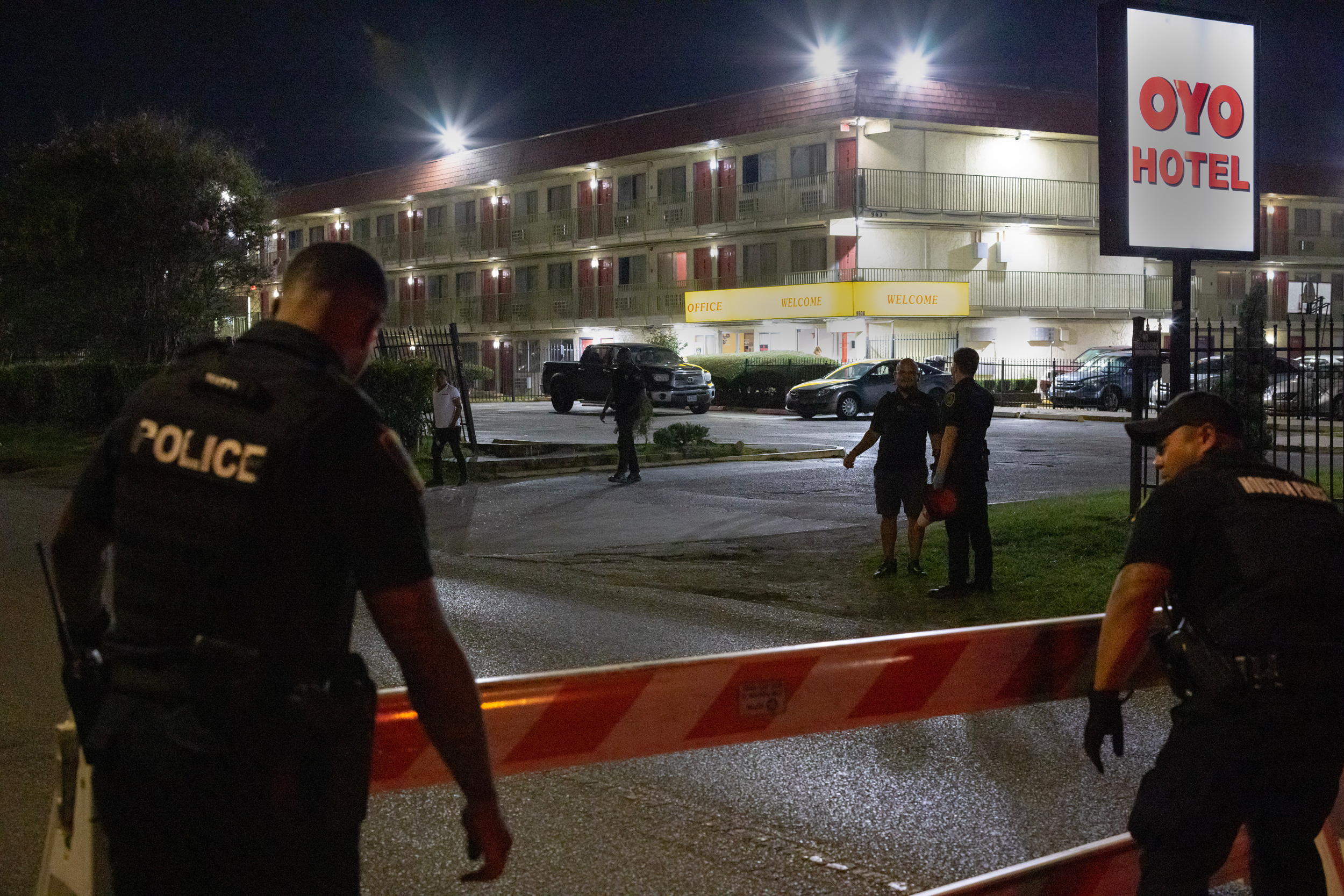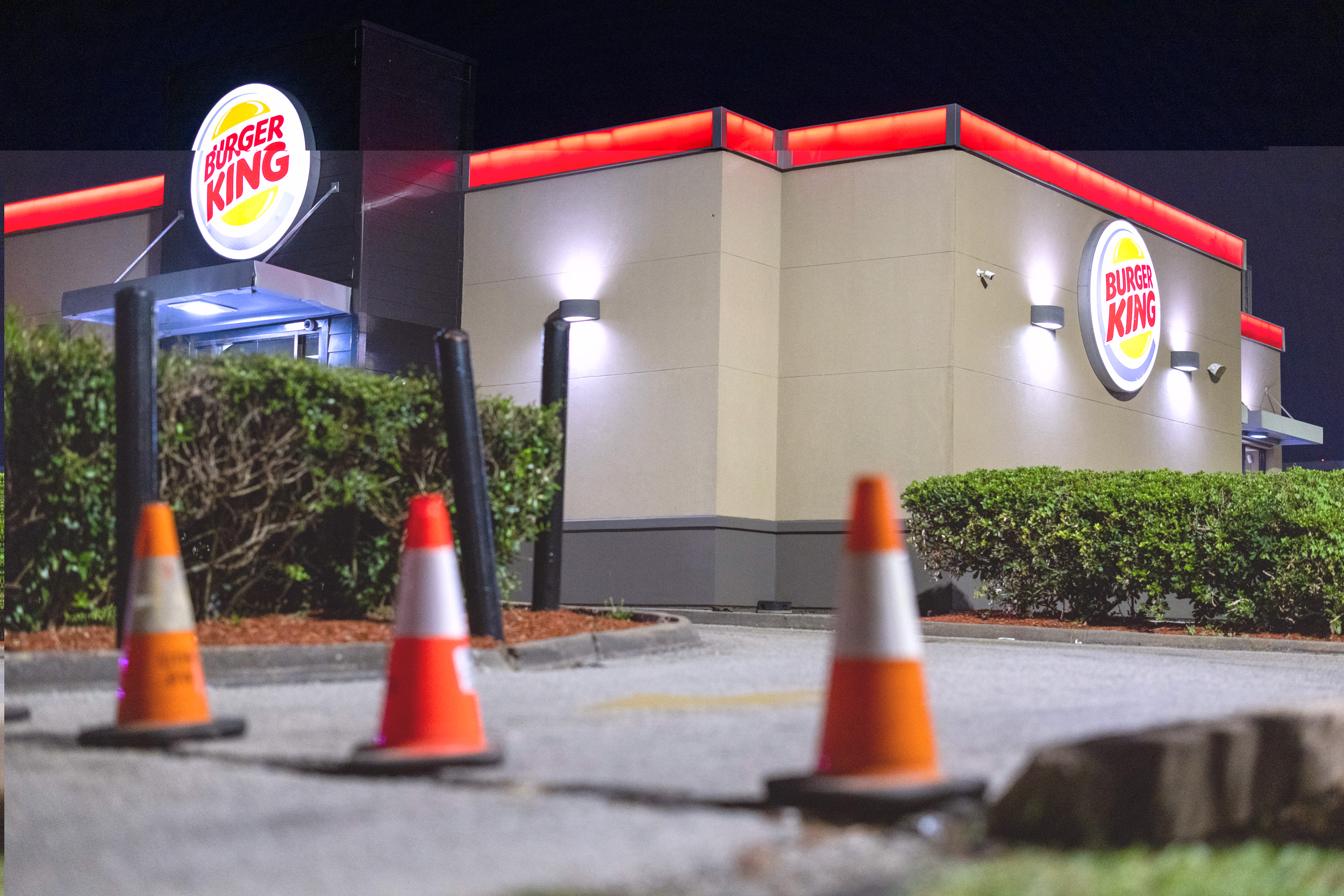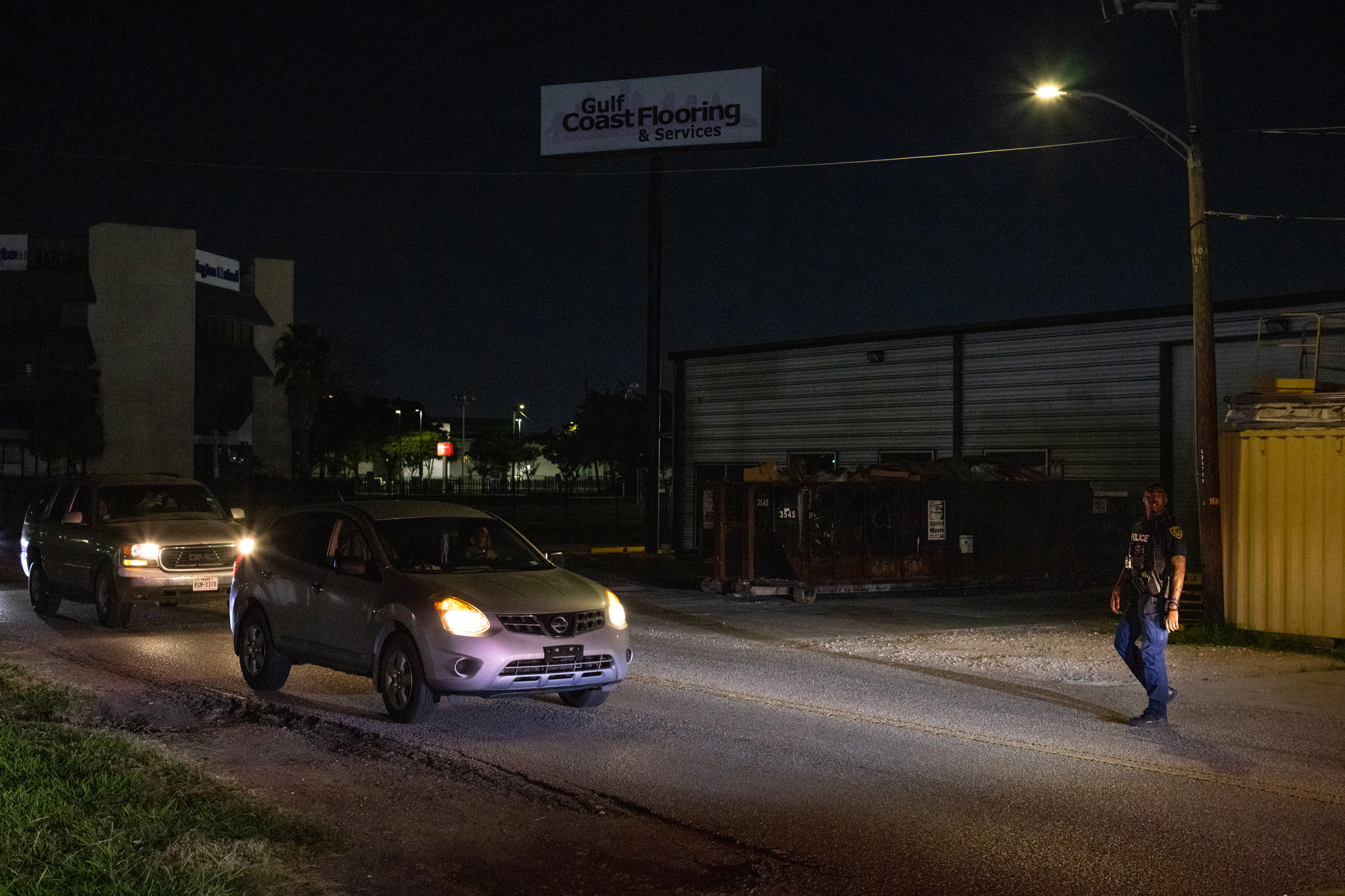|
Getting your Trinity Audio player ready...
|
One by one, they raised their hands inside the second-floor courtroom on Preston Street in downtown Houston.
“I am not surprised,” said Kathryn Griffin, who had asked the nearly two dozen people at the weekly support group whether they had ever done “strange things” along the notorious Bissonnet Track “for a little change.”
Griffin, a 63-year-old former sex worker and director of human trafficking services at the Harris County Constable’s Office Precinct 1, isn’t the only one who’s not surprised.
For decades, a stretch of road called the Bissonnet Track on Houston’s southwest side has had an international reputation for sex trafficking and prostitution.
“It’s a tight little loop that they continue to circle over and over again until they find what it is they’re looking for,” said Reece Hardy, commander of the Houston Police Department’s west side patrol division.
But those days may have come to an end.
For the past month, HPD has closed Centre Parkway and Plainfield Street to traffic nightly from 10 p.m. to 5 a.m. Motorists wanting to get to Bissonnet Street from the Southwest Freeway or vice versa have had to find alternate routes.
Hardy said Houston Mayor Sylvester Turner has made combating sex trafficking in the Bissonnet Track a high priority.
Over the years, Texas has consistently ranked high for reported cases of human trafficking. One study estimates there are 313,000 victims of human trafficking in Texas, including 79,000 minors.
According to Houston police, the city is a hub for trafficking because of its proximity to the U.S.-Mexico border; its major international airport, seaport and highways; its expanding population and diverse labor sector.
Road closure latest step in crack down
So far, the deterrence operation appears to be working. On a recent Friday night, all was quiet along Plainfield Street as a Houston police cruiser stood watch.
The road closures are just the latest effort to crack down on what local law enforcement have described as flagrant solicitation and drug dealing, sometimes in full view of students and teachers at Best Elementary School along Centre Parkway.
A former sex worker told the Houston Chronicle in 2019 that at peak times she saw 200 or 300 sex workers walking the four or five blocks of the Bissonnet Track on a single weekend.
In 2018, local officials asked a judge to declare several blocks in the area off-limits to more than 80 suspected sex workers, pimps and johns. But the effort to establish the so-called no-prostitution zone fizzled out.
Jonathan Fombonne, first assistant county attorney with the Harris County Attorney’s Office, said the civil suit was dropped last year.
Griffin supports the road closures, saying they send a strong message that the Bissonnet Track is no longer open for business.
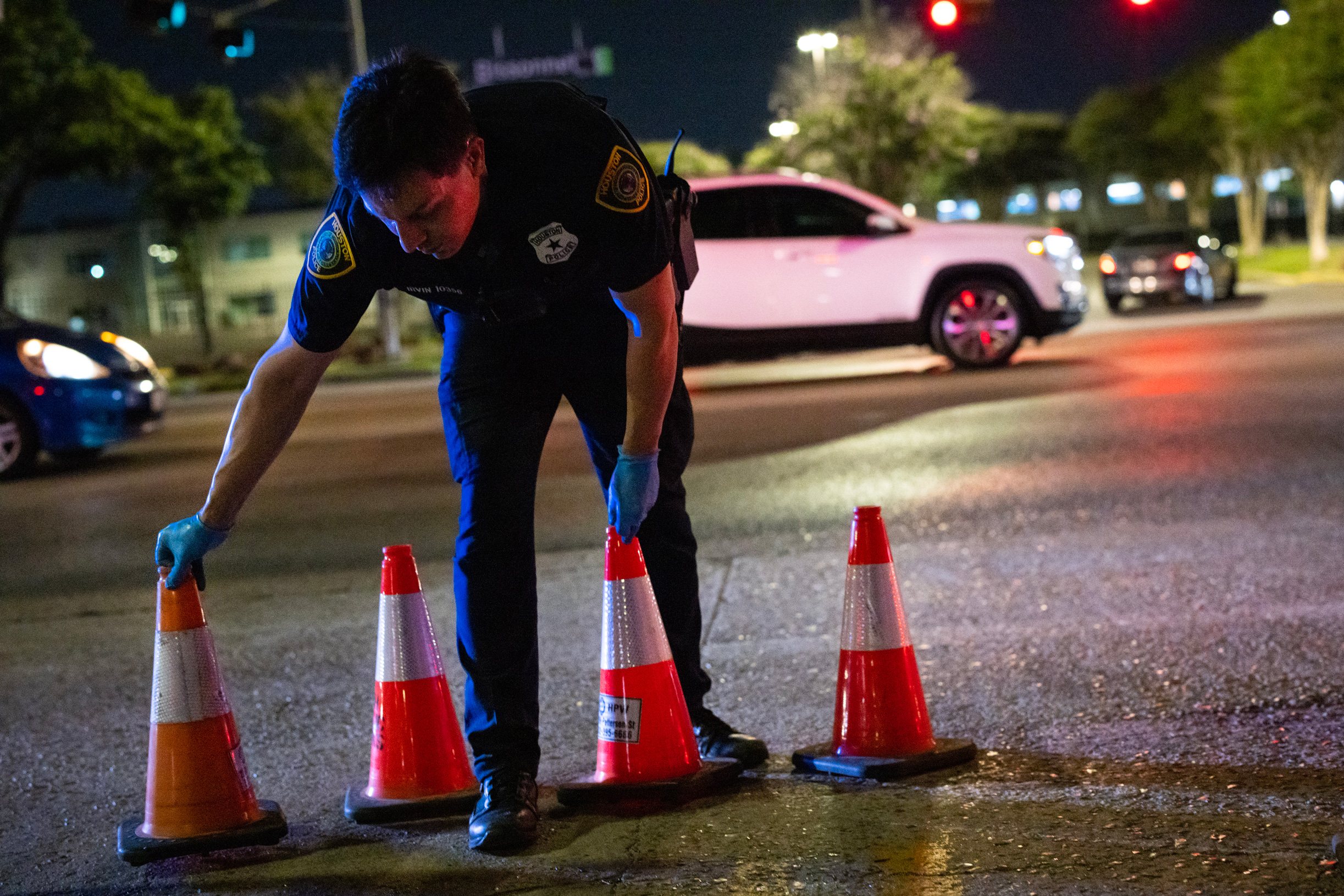
“It looked like the Chick-fil-A line for years,” she said, alluding to the sheer number of cars that used to frequent the area.
Neighborhood business owners are also applauding the nightly closures.
Bola Ogunjinmi, who owns the African restaurant Finger Licking along Bissonnet Street, said sex workers who used to loiter outside his business in varying stages of undress scared away his customers.
“We went from a company that could do $10,000 a month to one that can’t do more than $800. It is that bad,” Ogunjinmi said. “We once had 33 employees. Now we’re down to 14. You can barely pay your bills.”
Hoping for new investment
Nana Munumkum, who’s owned Afrikoko Restaurant near Plainfield Street for 25 years, hopes the road closures will lead to increased investment in the area. “For the past two weeks, everything has been a blessing,” said the 62-year-old.
But some fear the road closures will only make life harder for those being trafficked. HPD as of June 1 had made 586 prostitution-related arrests citywide this year, closing in on the 596 prostitution-related arrests made last year.
“Pimps and handlers won’t care if the closures make the job harder,” said Heather Martinez, a human trafficking survivor who regularly attends the support program that Griffin has run for the past 20 years. “They’ll just say, ‘get out there.’”
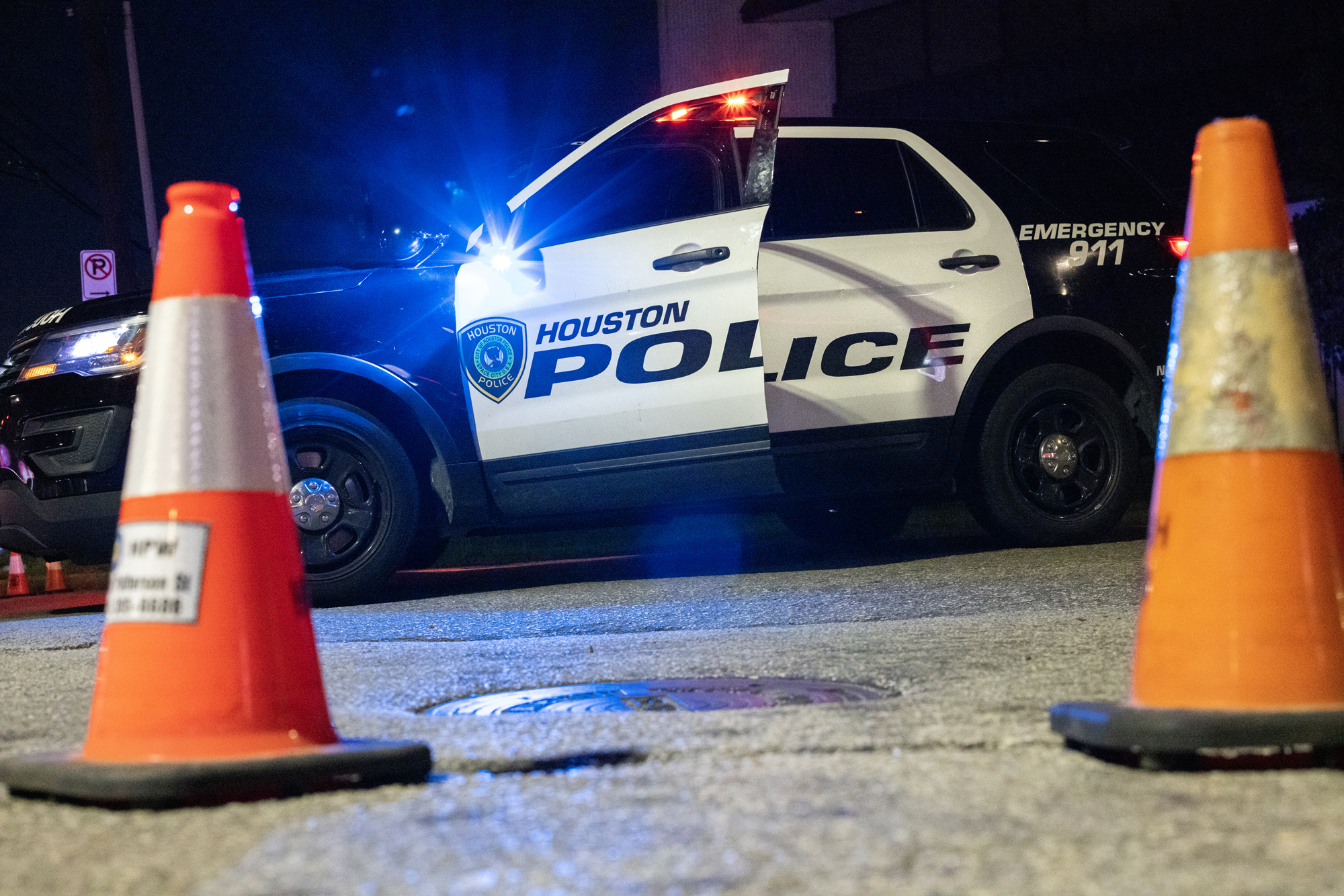
Martinez and other participants of Griffin’s class also fear closing roads will only move the city’s hub of sex activity elsewhere. Griffin cited Airline Drive on Houston’s north side, saying most adult sex workers now operate there.
Hardy said Airline Drive doesn’t see nearly as much activity as Bissonnet. He also said the police department’s human trafficking unit, which operates under the vice division, is aware of the potential for other areas to see an uptick in sex work now that the Bissonnet Track is largely shut down.
Hardy said officers who work the track are adept at interviewing sex workers, adding that Houston police regularly works with advocacy groups and non-governmental organizations to help sex workers and human trafficking survivors get off the streets.
“We certainly don’t want to do anything that would make it more difficult for them to get out of a life they don’t want to be in,” he said. “At the same time, we also have a responsibility to the residents, business owners and the folks who work in that area to not allow (illicit activity) to occur so blatantly, especially in front of a school.”
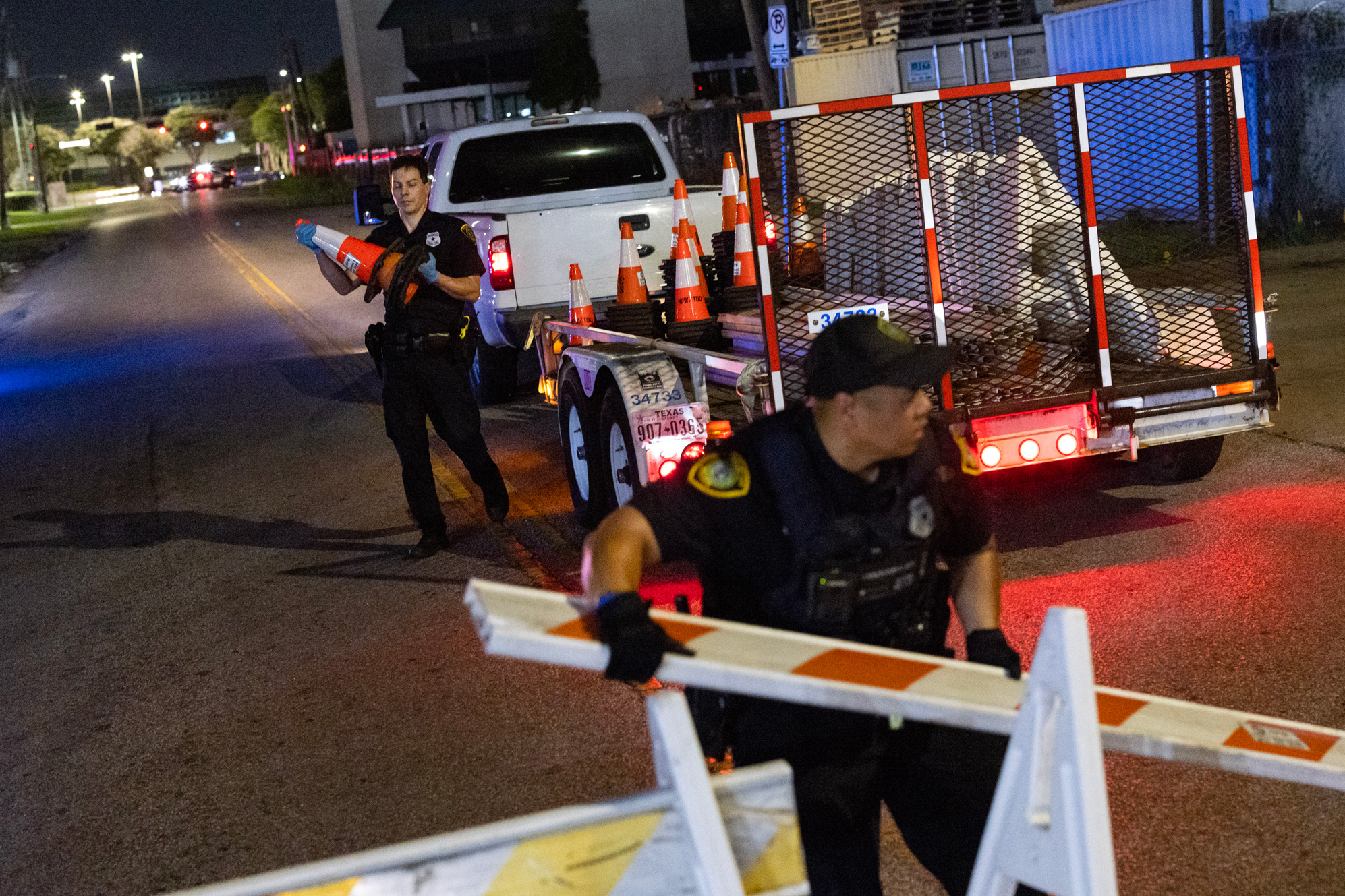
One of the organizations that does outreach in the track is Elijah Rising, a nonprofit that offers long-term housing, trauma care and case management to trafficking survivors free of charge, many of whom are not from Houston, said David Gamboa, communications director for the nonprofit.
Gamboa said other parts of southwest Houston have seen increases in trafficking activity since the closures. He also said many of those being trafficked have likely been transported to other cities.
The larger issue, said Gamboa and Griffin, is a lack of bed space for trafficking survivors in Houston and nationwide. Some shelters and nonprofits refuse to take in sex workers who have kids or a substance issue, they said.
“Until you start plucking away at the root of the problem, we have got to have a place to put them, so we can start the healing and rehabilitative process,” Griffin said.
And hotel vouchers aren’t a solution, unless the hotel in question has been converted to supportive or transitional housing, Griffin added. “You’re putting them right back in the mouth of the beast,” she said.
For the time being, the road closures are intended to continue indefinitely, something Munumkum is afraid won’t be the case.
“If you don’t maintain the peace, they will come back,” he said.


